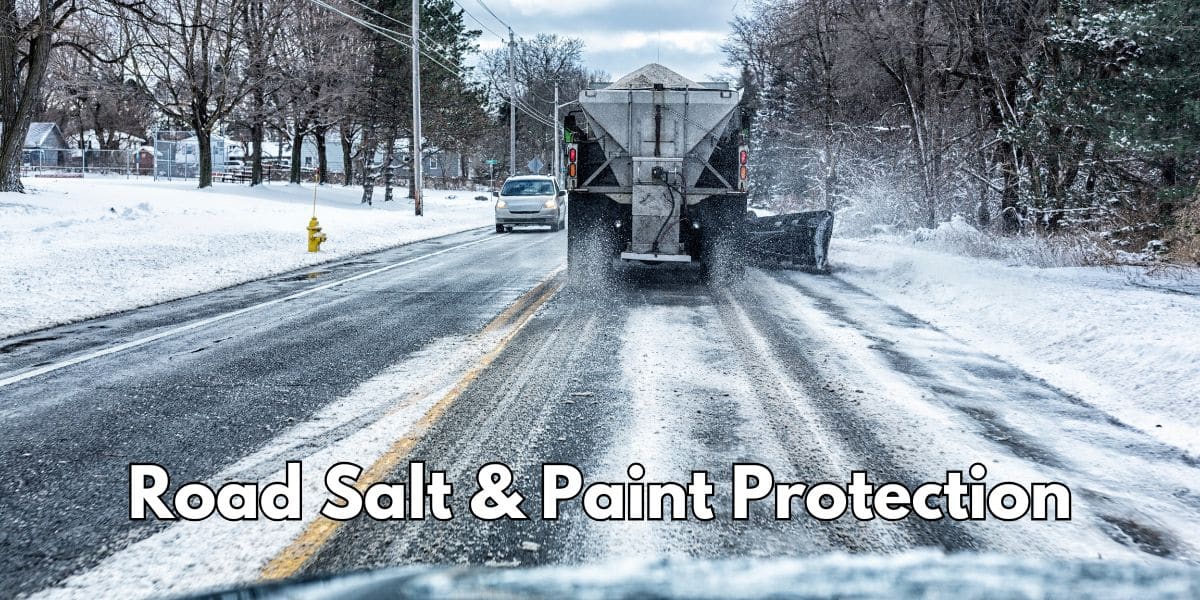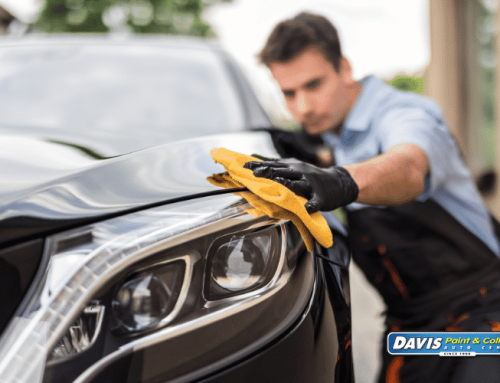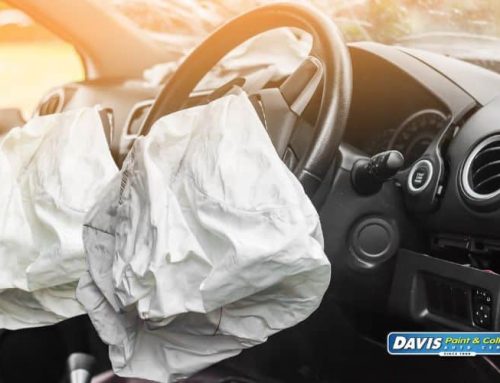Winter weather brings many challenges for drivers, and one of the most overlooked threats to your vehicle is road salt. While essential for melting ice and improving traction, road salt can take a toll on your car’s paint, metal components, and overall appearance. At Davis Paint & Collision Auto Center, we’re here to share how road salt affects your vehicle and what you can do to protect it.
How Road Salt Affects Your Car
Road salt works by lowering the freezing point of water, which helps prevent ice formation on roads. Unfortunately, this salt is highly corrosive and can cause:
- Paint Damage: Salt can chip and corrode paint, exposing the metal underneath. Once exposed, moisture and salt can accelerate rust and corrosion.
- Undercarriage Corrosion: Salt builds up under your vehicle, attacking the frame, suspension, and brake lines.
- Wheel and Trim Damage: Aluminum and chrome finishes on wheels and trim are vulnerable to pitting and staining from salt exposure.
Steps to Protect Your Car’s Paint from Road Salt
1. Wash Your Vehicle Regularly
Frequent washing during winter is critical to removing salt before it can cause damage. Pay special attention to the undercarriage, wheel wells, and lower panels where salt accumulates the most.
- Use a high-pressure rinse to dislodge hidden salt deposits.
- Wash your car at least every two weeks, or more often after heavy snow or slushy conditions.
2. Apply a Protective Wax or Sealant
A quality wax or paint sealant creates a barrier between your car’s paint and harmful elements like road salt. Apply wax before winter starts and reapply as needed to maintain protection.
3. Consider Ceramic Coating
For long-lasting protection, a ceramic coating is an excellent investment. It provides a durable shield against salt, dirt, and UV rays, keeping your car looking pristine throughout the season.
4. Use Mudguards and Splash Guards
Mudguards or splash guards help prevent salt from being thrown onto the sides of your car, reducing the risk of damage to paint and undercarriage.
5. Avoid Driving Through Slush
Slush on the roads is often saturated with salt. Minimize driving through it, especially in areas with heavy road salt application.
6. Rinse After Driving on Treated Roads
If washing isn’t immediately possible, rinse your car with clean water after driving on heavily salted roads to prevent buildup.
What to Do If Your Paint Is Already Damaged
If you notice chips, scratches, or early signs of rust, addressing them quickly can prevent further damage:
- Paint Touch-Up: Small chips can be repaired with touch-up paint to seal exposed metal.
- Professional Detailing: A thorough detailing service can remove embedded salt and apply protective coatings.
- Rust Treatment: If rust has started, a professional body shop like Davis Paint & Collision Auto Center can remove the affected area and restore your vehicle’s finish.
Protect Your Investment This Winter
Your car is a significant investment, and winter weather doesn’t have to ruin its appearance. By taking proactive steps to protect your paint and addressing damage early, you can keep your car looking great and maintain its value.
At Davis Paint & Collision Auto Center, we specialize in professional detailing, paint repair, and protective coatings to guard against road salt damage. Whether you need a touch-up or a full ceramic coating, our team has you covered.
Ready to Protect Your Car This Winter?
Contact Davis Paint & Collision Auto Center today to learn more about our paint protection services. Let us help you keep your car looking its best, no matter what the road throws at it!







